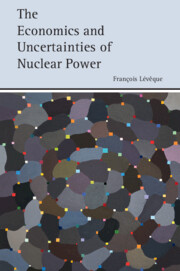Part IV - National policies and international governance
Published online by Cambridge University Press: 05 January 2015
Summary
National policies and international governance
Politics is a possible route for taking decisions under uncertainty. Faced with the controversial findings of experts, it is up to public policy-makers to choose and act. It should consequently not come as a surprise to discover that politics plays a predominant role in decisions on nuclear power. Considerable uncertainty weighs on its competitive advantage, risks and regulation. Politics is also a way of providing and managing common goods. Only through mechanisms of public governance can safety and non-proliferation be secured. But, in contrast with this concept of strategically minded governments boldly advancing into the fog or labouring for the general interest, we are sometimes confronted with a more prosaic picture of public decision-making, a process not so much guided by scientific experts and legal advisors, as by the support of lobbies and vote-seeking. The pressure brought to bear on governments by ‘green’ parties or industrialists also explains many nuclear-policy decisions.
Regardless of where it originates, the decisive weight of politics is illustrated by a trivial observation: countries have adopted and are still pursuing very different courses on the atom. Germany, which invested in nuclear power at an early stage, is now attempting a rapid exit; in neighbouring Austria not a single reactor has ever generated any electricity and the constitution bans nuclear power. France, on the other hand, is still banking on nuclear power, but wants gradually to reduce its share in the energy mix. Meanwhile, Switzerland and Belgium aim to gradually phase out nuclear power altogether. The former Soviet Union, the United States and the People’s Republic of China have developed civilian and military uses for the atom.
- Type
- Chapter
- Information
- The Economics and Uncertainties of Nuclear Power , pp. 207 - 210Publisher: Cambridge University PressPrint publication year: 2014



